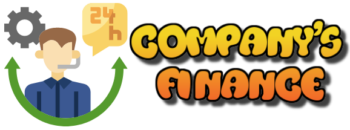The real estate sector has witnessed significant advancements in technology over the last decade. One of the most influential innovations is rental management software. Designed to streamline the responsibilities of property management, these tools have become essential for landlords, real estate investors, and property managers navigating the challenges of remote property administration.
This blog examines the benefits of managing properties remotely with online rental management software. Whether you own a single property or handle dozens of rental units, these tools offer game-changing advantages that could redefine how you run your business.
Why Remote Property Management is Essential Today
Property management is evolving as more landlords and property owners branch out to invest in locations far from their physical residence. According to recent industry reports, remote property management has increased by over 45 percent globally in the last five years. This trend is accelerating due to the rise of digital platforms, which make it easy to buy, rent, and oversee properties from virtually anywhere.
Remote property management offers flexibility and convenience, but it comes with unique challenges, such as ensuring timely tenant communication, managing maintenance requests, and handling lease agreements. That’s where rental management software becomes indispensable. By centralizing your property-related tasks into a digital hub, you gain efficiency, scalability, and peace of mind.
Benefits of Managing Properties Remotely with Rental Management Software
With the help of rental management software, property owners can access numerous benefits, ranging from operational efficiency to enhanced tenant satisfaction. Below are the key advantages to consider.
Streamline Tenant Communication
Timely and transparent tenant communication is crucial to property management. Remote management software simplifies this process with built-in messaging features, ensuring tenants can easily report issues, sign lease agreements, or ask questions. Around 67 percent of tenants believe prompt communication is a critical factor when deciding to renew their lease.
Automated notifications and reminders further bridge communication gaps, helping landlords maintain consistent contact with renters despite being physically distant.
Simplify Rent Collection
Collecting rent remotely no longer involves paper checks or manual transfers. With rental management software, you can set up digital payment systems that allow tenants to pay via their preferred method, including credit/debit cards, bank transfers, or online wallets.
Statistics show that over 80 percent of renters prefer digital payment options because they are quicker, safer, and easier to track. This feature also reduces late payments by enabling automated invoices and reminders. Additionally, property owners have access to clear financial records without needing to track payments manually, reducing the chances of errors.
Manage Maintenance Requests Efficiently
Maintenance requests can often cause headaches for property owners, especially when managing multiple units across distant locations. Rental management software provides a streamlined platform for maintenance requests where tenants can log issues directly, attach photos, and track the status of repairs in real time.
This transparency strengthens landlord-tenant relationships while addressing issues promptly. Approximately 75 percent of landlords report increased tenant satisfaction when maintenance problems are resolved swiftly, thanks to automated systems.
Centralized Document Management
Rental properties involve a sea of documentation, from lease agreements to tenant applications and tax documents. Traditionally, managing physical copies of these documents could lead to clutter or important files getting misplaced.
Rental management software solves this issue by offering secure cloud-based storage for all your property-related documents. You can access, share, or review them anytime, reducing dependency on physical paperwork. According to data, centralized document management in rental platforms reduces administrative workload by up to 40 percent.

